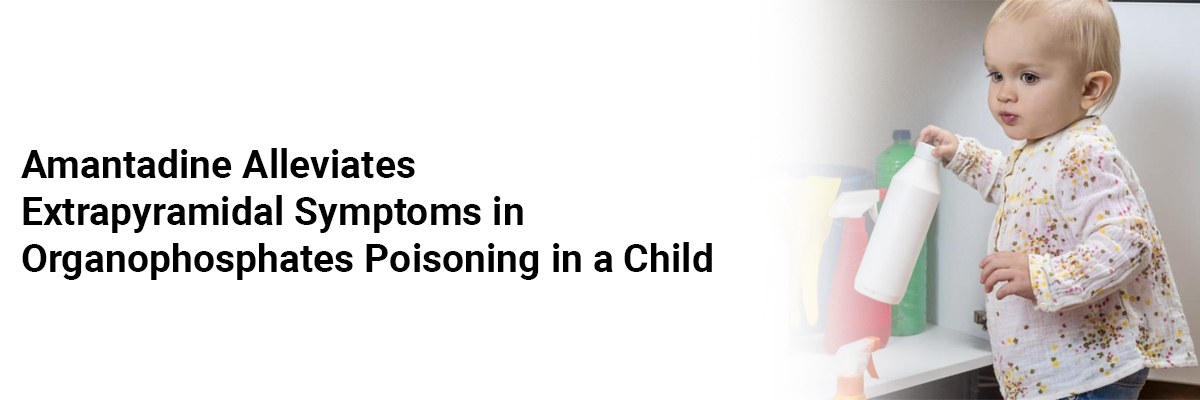
 IJCP Editorial Team
IJCP Editorial Team
Amantadine Alleviates Extrapyramidal Symptoms in Organophosphates Poisoning in a Child
Organophosphates are chemical compounds that can lead to the accumulation of acetylcholine, resulting in muscarinic symptoms like salivation and nicotinic symptoms, including muscle weakness and hypertension. In rare cases, they can lead to basal ganglia impairment – causing extrapyramidal symptoms. Some studies have suggested that amantadine, a compound with antiviral and dopaminergic properties, can improve these extrapyramidal symptoms.
A 6-year-old boy weighing 20 kg was rushed to the Emergency Department after being found in a drowsy and drooling state next to an insecticide bottle. However, soon after, he went into cardiac arrest but was successfully revived after 5 minutes of CPR and 5 doses of atropine (0.02 mg/kg/dose).
He also received one dose of pralidoxime 50 mg and was subsequently intubated and admitted to the Pediatric Intensive Care Unit (PICU). He was placed on an atropine infusion at a rate of 0.2 mg/hour for one hour, which was then reduced to 0.1 mg/hour for another hour before discontinuation. Following this, the atropine dose was divided: initially, 0.2 mg every 2 hours for 10 doses, then spaced to every 8 hours with a dose of 0.5 mg for 3 doses before discontinuation.
After five days, he was transferred to a Specialty Pediatric Hospital, where he spent one week in the PICU receiving antiepileptic medications and morphine. Later, he was moved to the general ward, where he began experiencing symptoms such as delirium, hyperactivity, akathisia, and aphonia.
The child was initially prescribed gabapentin and chloral hydrate, which proved ineffective in resolving his symptoms; his condition worsened, and he developed tremors, rigidity, and a persistent head tilt. Atropine toxicity was considered but deemed less likely due to several factors, including appropriate dosages and the timing of symptom onset. A literature review led to the hypothesis of extrapyramidal symptoms resulting from organophosphate poisoning, prompting a trial of oral amantadine at 50 mg once daily, later increased to 50 mg twice daily.
Over two weeks in the general ward, the patient showed consistent improvement. Upon discharge, he could walk without support and play with numbers and puzzles, and his tremors and speech clarity significantly improved. He was followed up post-discharge, and amantadine was discontinued after almost three months without noteworthy side effects.
Organophosphate poisoning is relatively common in children, leading to cholinergic syndrome and muscarinic symptoms due to acetylcholine accumulation and cholinergic receptor stimulation. However, such cases are rare, with only a limited number reported. Treatment typically involves atropine, oxime, and anticonvulsants. Amantadine has been found beneficial in treating extrapyramidal symptoms following organophosphate poisoning.
This case highlights the potential benefits of using amantadine to treat extrapyramidal symptoms resulting from organophosphate ingestion in children.
Source: Althaqafi W, Alanazi RI, AlmeshariWK. Case reports in pediatrics. 2023 Sep 4;2023.

IJCP Editorial Team
Comprising seasoned professionals and experts from the medical field, the IJCP editorial team is dedicated to delivering timely and accurate content and thriving to provide attention-grabbing information for the readers. What sets them apart are their diverse expertise, spanning academia, research, and clinical practice, and their dedication to upholding the highest standards of quality and integrity. With a wealth of experience and a commitment to excellence, the IJCP editorial team strives to provide valuable perspectives, the latest trends, and in-depth analyses across various medical domains, all in a way that keeps you interested and engaged.




















Please login to comment on this article